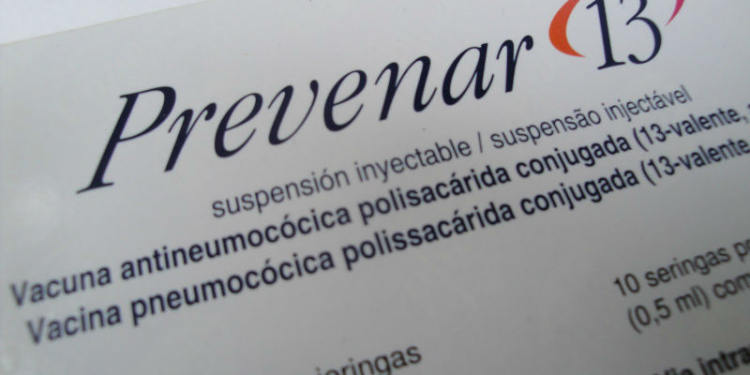The FINANCIAL — Pfizer Inc. on July 12 announced that Prevnar 13 (Pneumococcal 13-valent Conjugate Vaccine [Diphtheria CRM197 Protein]) received U.S. Food and Drug Administration (FDA) approval for an expanded age indication to include adults 18 through 49 years of age, in addition to the already approved indication for adults 50 years and older, for active immunization for the prevention of pneumonia and invasive disease caused by 13 Streptococcus pneumoniae (S. pneumoniae) serotypes (1, 3, 4, 5, 6A, 6B, 7F, 9V, 14, 18C, 19A, 19F, and 23F).
Prevnar 13 is the only pneumococcal vaccine approved across the lifespan, according to Pfizer.
With today’s decision Prevnar 13 is approved for:
Adults 18 years of age and older for the prevention of pneumococcal pneumonia and invasive disease caused by 13 Streptococcus pneumoniae strains in the vaccine
Children 6 weeks through 17 years of age (prior to the 18th birthday) for the prevention of invasive disease caused by 13 Streptococcus pneumoniae strains in the vaccin
The expanded age indication now more closely aligns with the 2012 U.S. Centers for Disease Control and Prevention’s Advisory Committee on Immunizations Practices (ACIP) recommendations for adults 19 years of age and older with immunocompromising conditions (e.g., HIV, chronic renal failure, cancer), functional or anatomic asplenia (e.g., sickle cell disease), cerebral spinal fluid leak, and Cochlear implants. This is in addition to recommendations set forth by ACIP in 2014 for adults 65 years and older.
“This expanded age indication in adults 18 to 49 offers an important public health benefit as appropriate vaccination against S. pneumoniae is critical to reducing the risk of pneumococcal disease, including in those with immunocompromising conditions,” said Dr. Luis Jodar, Chief Medical and Scientific Affairs Officer, Pfizer Vaccines.
The FDA’s decision to approve the label expansion followed the submission and review of data from an open-label, Phase 3 trial of Prevnar 13 in adults who were not previously vaccinated with the 23-valent pneumococcal polysaccharide vaccine (PPSV23). The study, which was published in Vaccine in October 2015, compared the immunogenicity, safety, and tolerability of Prevnar 13 in adults age 18 to 49 years with adults age 60 to 64, for whom Prevnar 13 was already approved.
S. pneumoniae, also known as pneumococcus, is the most common bacterial cause of community-acquired pneumonia. Pneumococcal pneumonia can be classified as non-invasive when bacteria cause infection in the lungs but are not detected in the blood concurrently, or invasive when bacteria also enter the bloodstream (bacteremic pneumonia) or another normally sterile site in the body. While non-invasive forms of pneumococcal disease are typically more common, the invasive types of disease are generally more severe.
































Discussion about this post